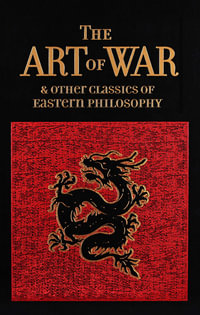Davis argues persuasively that cyber technology--like the Cold War development of increasingly destructive nuclear weapons--requires of nations a complex rethinking of the nature of modern warfare.... Davis does an excellent job of explaining such concepts as hacktivism, cyberespionage, weaponized cyberattacks, cyberterrorism, and online disinformation campaigns by presenting numerous illustrative examples. She also points out that entirely laudable policies, such as tracking COVID exposure through facial recognition, social network analysis, cell phone monitoring, and other invasive technologies may lead to increased governmental privacy violations in the future. Davis's most creative argument is that the longstanding differences between the Western nations, Russia, and China in their philosophical attitudes to warfare now are impacting the various ways in which these countries approach cyber conflicts. Recommended.
-- "Choice Reviews"
Elizabeth Van Wie Davis argues that we are living in a permanent state of war, and it is within the cyber domain that the battles--attacks, counterattacks, and spying--occur with increasing frequency. The internet, once deemed an innovative, happy, and vibrant space that supports online banking, social media interaction and streaming entertainment, has now become a war zone, populated by shadow warriors often acting on the behest of state sponsors. Not only are the cyber actors or their actions obscured, but their temporal constraints have also disappeared. In other words, cyberwarfare is the ultimate "forever war." It is persistent because the various actors are constantly in a state of conflict or war. There are no beginnings, endings, peace treaties, reparations, condolences or monuments. Moreover, cyberwarfare, according to Davis, "has morphed warfare into shadow warfare by blurring the distinction between adversary and ally." Shadow Warfare is a must-read for anyone seeking an in-depth understanding of contemporary cyberwarfare, its variants, its modalities and the associated challenges that lie ahead.
--Paul J. Smith, Professor of National Security Affairs, Naval War College, Newport, Rhode Island
Shadow Warfare is fast-paced, full of riveting descriptions of cyber espionage, clearly illustrating our vulnerabilities, and the rapidly growing capabilities available to governments and non-state actors around the world. I found it difficult to stop reading. I was particularly impressed with Dr Davis's emphasis on policy, on the comparison of policies between the United States, the Kremlin, and the Chinese Communist Party. The technological part is relatively easy - it's getting the policy and law right, especially when the US are trying to coordinate with Allies and other nations, that is much more difficult. Dr Davis's book will help the reader understand this.
--Ben Hodges, Pershing Chair in Strategic Studies, Center for European Policy Analysis
Shadow Warfare offers a comprehensive and extensively researched analysis of the importance of cyber warfare in international politics. Unique among other studies, it offers a comparative perspective of the domestic institutions and strategies of the United States, Russia, and China. This comparative perspective reveals how all three powers share extensive reliance on offensive cyber attacks in their national security policies, targeting both industrial and government secrets.
--Robert S. Ross, Professor of Political Science, Boston College
This is simply an outstanding book! Van Wie Davis takes on an enemy that few in the policy world even recognise - definitional laziness. The centre of gravity of the book concerns the extent to which cyberwar enables a new form of systemic warfare in which the distinction between allies and adversaries becomes irrelevant. Chinese, Russian and US policy is the focus of the book, but the real challenge is how to render order from disorder, anarchy and the destruction it could afford. Read it and learn!
--Julian Lindley-French, Chair of The Alphen Group
























